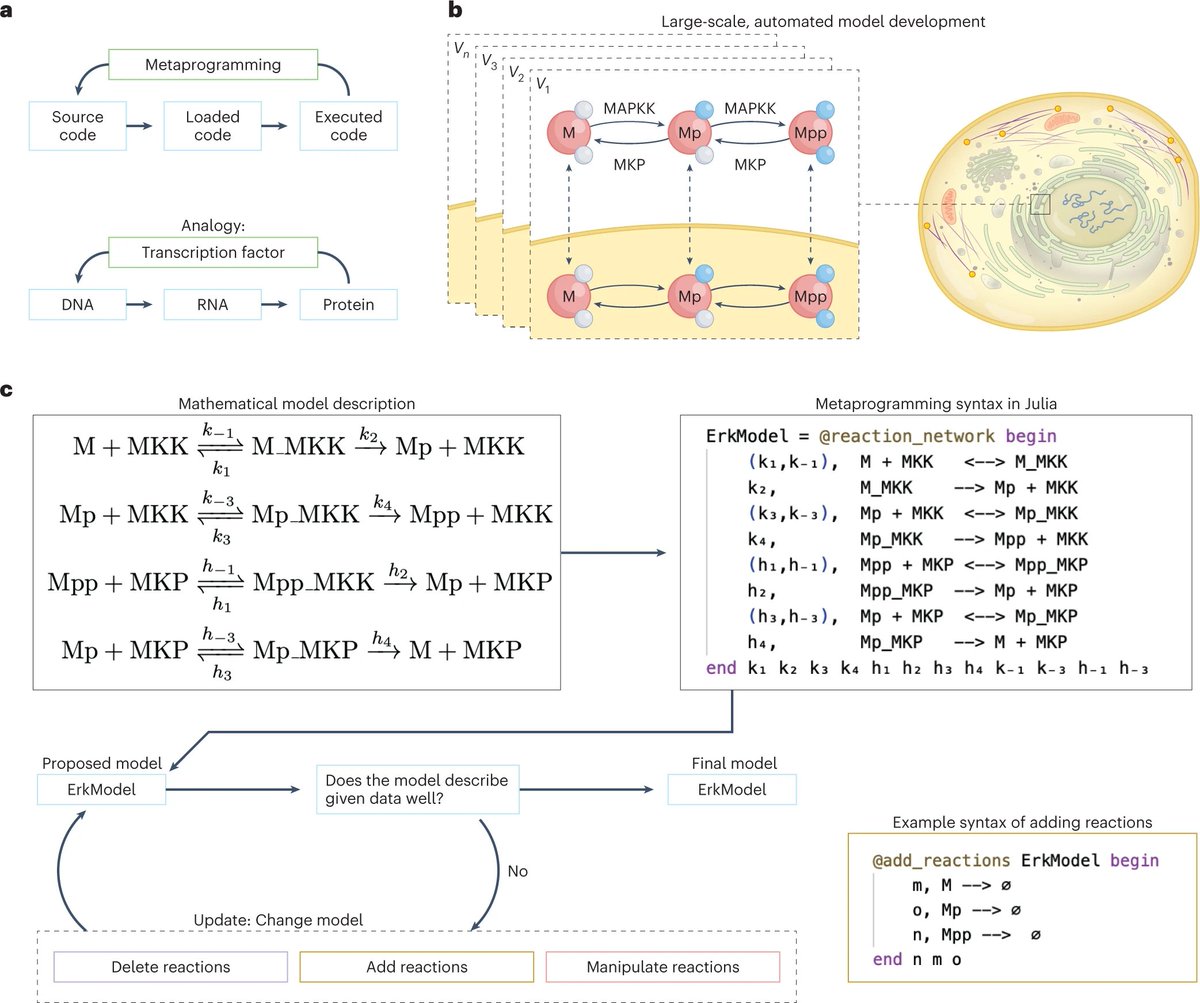Why are biologists adopting #julialang #sciml? Performance, metaprogramming, and the development of new abstractions are improving software tools for #computationalbiology #systemsbiology #bioinformatics. Check out this new paper in Nature Methods!
nature.com/articles/s4159…
nature.com/articles/s4159…
In this we detail how #julialang's core compute model gives faster code, with a detailed calculation of the effects of the #python interpreter and kernel launching costs on simulation performance. It's pretty cool how one can pen and paper calculate the 100x expected difference. 

Julia's ecosystem has a complete set of tools for mathematical modeling (#sysbio), #bioinformatics, #machinelearning, and #datascience which we contextualize in the field of biology. 

We showcase how the abstractions afforded by multiple dispatch lead to simpler code that does not compromise on performance. Examples like the recursive plotting recipe system, abstract graph types, and IO do not have matches in other languages and improve usability 

The final result is code that looks like the math but also does not sacrifice features or performance. Yes, that bit right there is runnable code, and that runnable code is one of the fastest chemical reaction simulators out there! 

If you're curious to see more on this chemical reaction modeling framework Catalyst.jl, check out the tweet thread on its recent preprint detailing 100x performance improvements over other #systemsbiology #chemicalreactionnetwork simulation tools
https://twitter.com/ChrisRackauckas/status/1554553217270300672
If you want to participate in the open discussions about next directions for the open source software ecosystem, please check out the discussion session at @JuliaConOrg! For more details, see this Tweet:
https://twitter.com/ChrisRackauckas/status/1643226587729481730
• • •
Missing some Tweet in this thread? You can try to
force a refresh

 Read on Twitter
Read on Twitter








